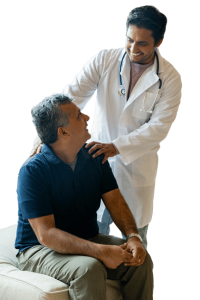
COPD
Comprehensive care for Chronic Obstructive Pulmonary Disease (COPD), including breathing assessments, medication plans, and long-term management strategies by Dr. Rajdeepak V.S. in Banashankari, Bangalore. Early intervention can significantly improve quality of life and slow disease progression.
Best COPD Treatment in Bangalore
Chronic Obstructive Pulmonary Disease (COPD) is a long-term respiratory condition that includes chronic bronchitis and emphysema, leading to persistent coughing, shortness of breath, and declining lung health. COPD Treatment in Bangalore is crucial, especially with increasing pollution and smoking habits being major contributors. Early diagnosis and specialized care from experts like Dr. Rajdeepak V.S, General Physician and Internal Medicine Specialist, play a vital role in managing COPD and preventing complications such as pulmonary hypertension and chronic asthma.
Effective COPD treatment in Bangalore includes bronchodilators, inhaled corticosteroids, oxygen therapy, and lifestyle modifications. For advanced cases, pulmonary rehabilitation, respiratory therapy, and severe cough treatment are recommended. With a personalized approach to COPD management, including guidance on COPD medicine, coughing asthma treatment, and asthma treatment medicine, Dr. Rajdeepak helps patients breathe easier and lead healthier lives
For those seeking expert care, Dr. Rajdeepak V.S, a trusted General Physician and Internal Medicine Specialist, offers comprehensive Asthma Treatment in Banashankari, Bangalore . His holistic approach includes accurate diagnosis, trigger identification, and tailored treatment plans to reduce asthma attacks and improve breathing comfort. Whether you’re dealing with mild or severe asthma, consulting an experienced specialist ensures long-term respiratory wellness.
What is COPD?
COPD (Chronic Obstructive Pulmonary Disease) is a progressive lung disease that causes long-term breathing problems and poor airflow. It includes two main conditions: chronic bronchitis, which involves inflammation of the airway lining, and emphysema, which damages the air sacs in the lungs.
The disease is characterized by symptoms like chronic cough, shortness of breath, mucus production, and wheezing. COPD gradually worsens over time and requires ongoing medical management to control symptoms and improve quality of life.
Causes of COPD
- Understanding what leads to Chronic Obstructive Pulmonary Disease (COPD) is the first step toward prevention and better respiratory health. Several factors contribute to the development of this chronic lung condition:
- Smoking: The most significant cause of COPD, including chronic bronchitis and emphysema, is long-term tobacco smoking. Cigarette smoke damages lung tissues and narrows airways, reducing airflow over time.
- Environmental and Occupational Exposure: Prolonged exposure to air pollution, chemical fumes, industrial dust, and indoor biomass fuel (especially in poorly ventilated homes) can severely impact lung health and increase COPD risk.
- Genetic Predisposition: Some people inherit a deficiency of alpha-1 antitrypsin, a protein that protects lung tissue, making them more susceptible to early-onset COPD even without smoking.
- Respiratory Infections: Repeated lung infections, particularly in childhood, can impair normal lung development and function, increasing vulnerability to COPD in later life.
Recognizing and addressing these causes early can slow disease progression and improve outcomes with timely COPD treatment in Banashankari, Bangalore.
Risk Factors of COPD
- Recognizing the risk factors for Chronic Obstructive Pulmonary Disease (COPD) is crucial for early diagnosis and preventive care. Certain lifestyle, environmental, and health-related factors can significantly increase the chances of developing this progressive lung disease:
- Age: People over the age of 40 are more prone to COPD symptoms, especially if they have a history of smoking or long-term exposure to lung irritants.
- Occupational Exposure: Individuals working in industries with high exposure to dust, chemical fumes, vapors, or airborne pollutants—such as construction, mining, or manufacturing—face a higher risk of lung damage over time.
- History of Respiratory Infections: Frequent childhood lung infections can interfere with normal lung development, leaving the lungs vulnerable to chronic diseases like COPD in adulthood.
- Smoking and Passive Smoke Exposure: Both active and passive smoking are leading contributors to reduced lung function and long-term respiratory issues.
By understanding and managing these risk factors early, individuals can take proactive steps toward prevention and timely COPD treatment in Banashankari, Bangalore.
Common Symptoms of COPD
Identifying the common symptoms of Chronic Obstructive Pulmonary Disease (COPD) early is essential for timely diagnosis and effective management. These symptoms often develop gradually but worsen over time if left untreated:
- Chronic Cough: Often persistent and productive, this is commonly known as a “smoker’s cough”, and may be one of the earliest signs of COPD in adults.
- Shortness of Breath: Especially noticeable during physical activity, indicating reduced lung function and airflow obstruction.
- Wheezing: A high-pitched or whistling sound during breathing, often linked to inflammation and narrowed airways.
- Chest Tightness: A feeling of pressure or discomfort in the chest, frequently reported during episodes of breathlessness.
- Frequent Respiratory Infections: People with COPD may experience recurrent colds, flu, or bronchitis, due to weakened lung defenses.
Recognizing these warning signs and seeking prompt medical attention can help slow disease progression and improve quality of life with the right COPD treatment in Banashankari, Bangalore.
Stages of COPD
Understanding the stages of Chronic Obstructive Pulmonary Disease (COPD) is vital for determining the best course of treatment and improving long-term lung health. The disease is typically categorized into four stages, based on the severity of airflow obstruction and symptom intensity:
- Mild COPD (Stage 1): Airflow is slightly limited. Individuals may have chronic cough and sputum production but often remain unaware of lung impairment.
- Moderate COPD (Stage 2): Symptoms like shortness of breath, fatigue, and chronic cough become more noticeable during daily activities.
- Severe COPD (Stage 3): Breathing becomes increasingly difficult, with frequent exacerbations, reduced exercise capacity, and impaired quality of life.
- Very Severe COPD (Stage 4): Marked by significant airflow limitation and potentially life-threatening complications, this stage requires continuous medical care and oxygen therapy.
Early detection and accurate staging can guide effective COPD treatment in Bangalore, improving quality of life and reducing hospitalizations.
Diagnostic Tests for COPD
Proper diagnosis is the cornerstone of effective Chronic Obstructive Pulmonary Disease (COPD) management. Early and accurate detection helps determine the severity of the disease and tailor a personalized treatment plan.
- Spirometry Test: This is the most essential lung function test to measure airflow limitation and diagnose COPD accurately.
- Chest X-ray or CT Scan: Helps identify structural lung damage, rule out other respiratory conditions, and detect complications like emphysema.
- Arterial Blood Gas (ABG) Analysis: Measures blood oxygen and carbon dioxide levels to evaluate respiratory efficiency.
- Alpha-1 Antitrypsin Deficiency Test: A genetic test used when COPD is suspected in non-smokers or younger patients.
Timely evaluation using these diagnostic tools supports effective COPD treatment in Bangalore, ensuring better symptom control and improved lung health.
Treatment Options for COPD
Managing Chronic Obstructive Pulmonary Disease (COPD) involves a multidisciplinary approach to control symptoms, prevent complications, and improve lung function. Under the expert care of Dr. Rajdeepak V.S, patients receive individualized and evidence-based treatment for long-term respiratory health.
Medication Management
- Bronchodilators: Help open airways by relaxing respiratory muscles, improving airflow and easing breathlessness.
- Inhaled Corticosteroids: Reduce inflammation in the airways, especially for those with frequent exacerbations.
- Combination Inhalers: Deliver both bronchodilators and corticosteroids for better symptom control and convenience.
Oxygen Therapy
- Prescribed for patients with low blood oxygen levels.
- Enhances energy, sleep quality, and physical endurance.
- Especially effective in advanced stages of COPD.
Pulmonary Rehabilitation
- A structured program combining exercise, education, and breathing techniques.
- Builds stamina, reduces breathlessness, and improves overall well-being.
- Encourages long-term disease management.
Surgical Interventions (For Severe COPD)
- Lung Volume Reduction Surgery (LVRS): Removes damaged lung areas to improve breathing efficiency.
- Lung Transplant: Considered in end-stage COPD when other treatments fail.
Lifestyle & Preventive Strategies
- Quit Smoking: The most essential step in slowing COPD progression.
- Avoid Environmental Triggers: Minimize exposure to pollutants, chemicals, and allergens.
- Regular Exercise & Nutrition: Strengthen respiratory muscles and boost immunity.
For personalized care and proven results, consult Dr. Rajdeepak V.S, a trusted name for COPD treatment in Bangalore. Timely intervention can significantly improve your quality of life and lung health.
Living with COPD – Effective Management Tips
Managing Chronic Obstructive Pulmonary Disease (COPD) involves more than just medication—it’s about adopting a comprehensive lifestyle approach that supports long-term lung health. Along with expert COPD treatment, these strategies can significantly improve daily functioning and quality of life:
- Quit Smoking: The most vital step in slowing disease progression and protecting lung function.
- Avoid Environmental Triggers: Reduce exposure to air pollution, chemical fumes, and dust, especially in urban environments like Bangalore.
- Engage in Regular Exercise: Participate in low-impact, doctor-recommended physical activities to improve endurance and respiratory strength.
- Follow a Balanced Diet: Eat nutrient-rich foods to boost immunity and maintain energy levels.
- Stay Vaccinated: Keep up with flu and pneumonia vaccines to prevent infections that can worsen COPD.
- Schedule Routine Medical Check-ups: Frequent assessments allow for timely treatment adjustments and better disease control.
- Commit to a Personalized COPD Treatment Plan: Tailored therapies, including inhalers, oxygen support, and pulmonary rehabilitation, help manage symptoms effectively.
Combining these lifestyle practices with expert care from specialists like Dr. Rajdeepak V.S ensures the best outcomes for those undergoing COPD treatment in Bangalore.
Conclusion
Navigating Chronic Obstructive Pulmonary Disease (COPD) requires a holistic approach—starting with early diagnosis, consistent medical care, and sustainable lifestyle changes. In a city like Bangalore, where environmental triggers can worsen respiratory conditions, specialized treatment becomes even more critical. With expert guidance from Dr. Rajdeepak V.S, General Physician and Internal Medicine Specialist, patients receive comprehensive and compassionate care tailored to their needs. By committing to a personalized treatment plan and ongoing support, individuals can significantly improve their lung function, reduce symptoms, and lead a better quality of life


